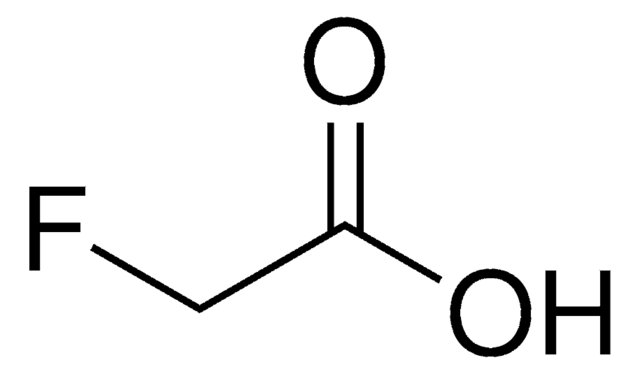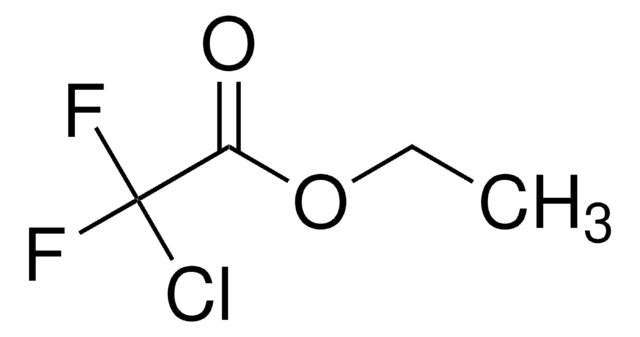142859
Difluoroacetic acid
98%
Sinónimos:
1,1-Difluoroacetic acid, 2,2-Difluoroacetic acid
About This Item
Productos recomendados
Quality Level
assay
98%
form
liquid
refractive index
n20/D 1.344 (lit.)
bp
132-134 °C (lit.)
mp
−1 °C (lit.)
density
1.526 g/mL at 25 °C (lit.)
SMILES string
OC(=O)C(F)F
InChI
1S/C2H2F2O2/c3-1(4)2(5)6/h1H,(H,5,6)
InChI key
PBWZKZYHONABLN-UHFFFAOYSA-N
¿Está buscando productos similares? Visita Guía de comparación de productos
General description
Application
signalword
Danger
hcodes
Hazard Classifications
Acute Tox. 4 Inhalation - Aquatic Chronic 3 - Eye Dam. 1 - Skin Corr. 1A
Storage Class
8A - Combustible corrosive hazardous materials
wgk_germany
WGK 3
flash_point_f
172.4 °F - closed cup
flash_point_c
78 °C - closed cup
ppe
Faceshields, Gloves, Goggles, type ABEK (EN14387) respirator filter
Certificados de análisis (COA)
Busque Certificados de análisis (COA) introduciendo el número de lote del producto. Los números de lote se encuentran en la etiqueta del producto después de las palabras «Lot» o «Batch»
¿Ya tiene este producto?
Encuentre la documentación para los productos que ha comprado recientemente en la Biblioteca de documentos.
Los clientes también vieron
Nuestro equipo de científicos tiene experiencia en todas las áreas de investigación: Ciencias de la vida, Ciencia de los materiales, Síntesis química, Cromatografía, Analítica y muchas otras.
Póngase en contacto con el Servicio técnico


















